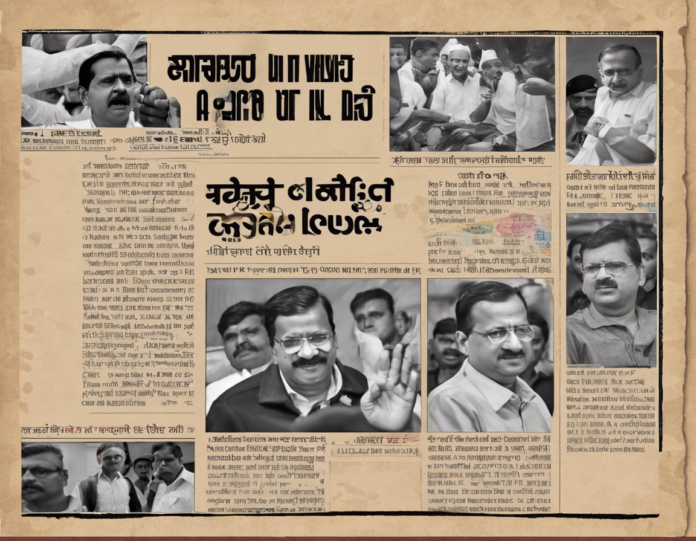As an expert in the field of politics and current affairs, I bring forth the latest updates and developments on the highly influential figure in Indian politics, Arvind Kejriwal. In this blog post, we will delve into the recent news surrounding the Aam Aadmi Party (AAP) leader, his political campaigns, policy decisions, and much more. Let’s explore the significant events that have shaped Arvind Kejriwal’s political career and the impact he has had on the Indian political landscape.
Arvind Kejriwal’s Journey in Politics
Arvind Kejriwal, a former civil servant, entered the realm of politics in 2012 when he founded the Aam Aadmi Party (AAP) with the vision of anti-corruption and clean governance. His meteoric rise to prominence came in the Delhi state elections of 2015 when AAP secured a landslide victory, with Kejriwal becoming the Chief Minister of Delhi for the second term in 2020.
Recent Political Campaigns and Initiatives
Kejriwal is known for his innovative political campaigns, including doorstep delivery of public services, improved healthcare infrastructure, and free water and electricity schemes. His approach to governance focuses on citizen-centric policies and welfare schemes.
Strategic Alliances and Opposition
In the shifting sands of Indian politics, Kejriwal has forged alliances with regional parties while facing significant opposition from national parties. His confrontations with the central government have been a subject of intense debate and scrutiny.
Key Policy Decisions and Reforms
Under Kejriwal’s leadership, Delhi has witnessed significant policy decisions, such as the Mohalla Clinics initiative for accessible healthcare, the Odd-Even traffic rule to combat pollution, and the revamping of the education sector through innovative reforms.
Challenges and Criticisms
Despite his popularity and achievements, Kejriwal has faced criticisms over his confrontational style of politics, allegations of populism, and questions over the sustainability of some of his welfare schemes.
Future Prospects and Elections
As Delhi gears up for the next state elections, all eyes are on Arvind Kejriwal and the AAP. The political landscape is evolving rapidly, and Kejriwal’s ability to adapt to these changes will determine his future in Indian politics.
Frequently Asked Questions (FAQs)
Q1: What are some of Arvind Kejriwal’s major achievements as the Chief Minister of Delhi?
A1: Some of the significant achievements under Kejriwal’s tenure include the improvement of public healthcare through Mohalla Clinics, the transformation of government schools, and the implementation of free water and electricity schemes.
Q2: How does Arvind Kejriwal’s governance style differ from traditional politicians in India?
A2: Kejriwal’s governance style is characterized by its citizen-centric approach, emphasis on transparency, and innovative policy decisions aimed at improving the quality of life for the common man.
Q3: What are some of the key challenges that Arvind Kejriwal faces in Indian politics?
A3: Kejriwal faces challenges such as political opposition from national parties, skepticism over the sustainability of his welfare schemes, and criticism over his confrontational style of politics.
Q4: How has Arvind Kejriwal’s relationship with the central government evolved over the years?
A4: Kejriwal’s relationship with the central government has been marked by conflict and confrontation at times, particularly on issues of administrative control and jurisdiction in Delhi.
Q5: What are the prospects of the Aam Aadmi Party (AAP) in the upcoming state elections in Delhi?
A5: The AAP under Arvind Kejriwal’s leadership is poised to put up a strong showing in the upcoming state elections in Delhi, based on their track record and popularity among the electorate.
In conclusion, Arvind Kejriwal remains a pivotal figure in Indian politics, known for his anti-corruption stance, citizen-centric governance, and innovative policy decisions. The future holds both challenges and opportunities for Kejriwal and the AAP as they navigate the complex terrain of Indian politics.












